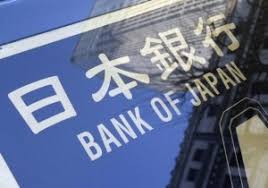By Monami Yui - Dec 18, 2012 9:45 AM GMT+0400
 The yen declined versus 14 of its 16 major counterparts as BOJ Governor Masaaki Shirakawa met Abe today and gains in stocks worldwide sapped demand for safer assets. Australia’s currency held a drop from yesterday after the Reserve Bank released minutes from its meeting this month when policy makers cut interest rates. Demand for the U.S. dollar was limited amid signs of progress in budget negotiations.
The yen declined versus 14 of its 16 major counterparts as BOJ Governor Masaaki Shirakawa met Abe today and gains in stocks worldwide sapped demand for safer assets. Australia’s currency held a drop from yesterday after the Reserve Bank released minutes from its meeting this month when policy makers cut interest rates. Demand for the U.S. dollar was limited amid signs of progress in budget negotiations.
The yen fell toward its lowest level since April 2011 before the Bank of Japan begins a two-day meeting tomorrow with incoming Prime Minister Shinzo Abe pressing it to engage in further policy easing.
“There is a cautious view that the yen has been dropping too rapidly,” said Noriaki Murao, New York-based managing director of the marketing group at Bank of Tokyo-Mitsubishi UFJ Ltd. “But I think yen-selling is only half done. Expectations are increasing for the BOJ to ease significantly,” said Murao, who sees the BOJ adding as much as 10 trillion yen ($119 billion) to its asset-purchase program this week.
The yen dropped 0.1 percent to 84 per dollar as of 2:34 p.m. in Tokyo from the close in New York yesterday, when it touched 84.48, the weakest since April 12, 2011. Japan’s currency weakened 0.2 percent to 110.63 per euro, after it sank as low as 111.32 yesterday, the least since March 21. Europe’s common currency was little changed at $1.3171 from $1.3164.
The implied volatility of Group of Seven currencies fell to match the lowest in five years, according to a JPMorgan Chase & Co. Index. The measure slid to 7.08 percent, equaling the Nov. 20 level that was the lowest since August 2007.
The 14-day relative strength index for the yen against the greenback was at 24 today, below 30 for a fifth day. A reading of 30 or lower indicates an asset may have fallen too far too quickly and is due for to reverse direction. The similar gauge versus the euro was at 22.
Abe Victory
Abe, whose Liberal Democratic Party swept to victory in elections for the lower house of Japan’s Parliament on Dec. 16, will have the chance to reshape the BOJ next year, when the terms of its governor and two deputies expire. The incoming prime minister reiterated yesterday he wants a 2 percent inflation target for the central bank, which compares with the current goal of 1 percent.
Shirakawa said today he met with Abe to exchange greetings and there was no discussion of monetary policy. The BOJ governor may visit LDP headquarters later today and discuss monetary policy with Abe, Jiji reported earlier, without citing anyone.
Price Target
The central bank will discuss setting a price target when it meets Dec. 19-20, the Nikkei said today, without saying where it obtained the information. A final decision is expected to be made in January, according to the report.
The MSCI World Index (MXWO) of shares added 0.1 percent today, after gaining 0.7 percent yesterday. Japan’s benchmark Nikkei 225 Stock Average climbed as much as 1.4 percent and touched the highest level in eight months today.
The yen has lost 12 percent this year, the worst performer of the 10 developed-nation currencies tracked by Bloomberg Correlation-Weighted Indexes. The dollar has weakened 3.1 percent while the euro has dropped 1.4 percent. Over the past month, the yen is down 5.7 percent, the greenback fell 2.2 percent and the shared European currency gained 1.4 percent.
The Australian dollar lost 0.1 percent to $1.0537, following a 0.1 percent slide yesterday. TheReserve Bank of Australia decided to cut interest rates to match the half- century low set during the 2009 global recession as a softer job market gave it room to bolster demand, minutes of its Dec. 4 meeting showed.
Budget Offer
In the U.S., President Barack Obama put forward a new budget offer that would raise taxes by $1.2 trillion and increase tax rates for households earning more than $400,000 a year, said a person familiar with the talks.
Obama’s plan would cut $1.22 trillion in federal spending, including interest savings, said the person, who spoke on condition of anonymity. House Speaker John Boehner said in his Dec. 14 offer that he would accept $1 trillion in revenue, up from $800 billion, according to a person familiar with the talks.
Obama and Boehner are negotiating to avert more than $600 billion in tax increases and spending cuts set to start in January. They met for 45 minutes yesterday at the White House for the third time in nine days as they try to prevent the so- called fiscal cliff, a scenario that threatens to throw the world’s biggest economy back into recession.
Gap ‘Narrowing’
“The overall gap between the Republican and Democratic position on revenue increases -- the most contentious part of the talks -- appears to be narrowing,” BNP Paribas SA strategists led by Steven Saywell, London-based head of currency strategy, wrote in a note to clients yesterday. “FX markets are predictably slowing ahead of the year-end holidays, but we suspect the outcome of the fiscal cliff negotiations will be important for the price action over last two weeks of the year.”
The Dollar Index (DXY), which IntercontinentalExchange Inc. uses to track the greenback against currencies of six U.S. trading partners, was little changed at 79.541 from 79.568 yesterday, when it fell as low as 79.474, the least since Oct. 22.
To contact the reporter on this story: Monami Yui in Tokyo at myui1@bloomberg.net
To contact the editor responsible for this story: Rocky Swift at rswift5@bloomberg.net